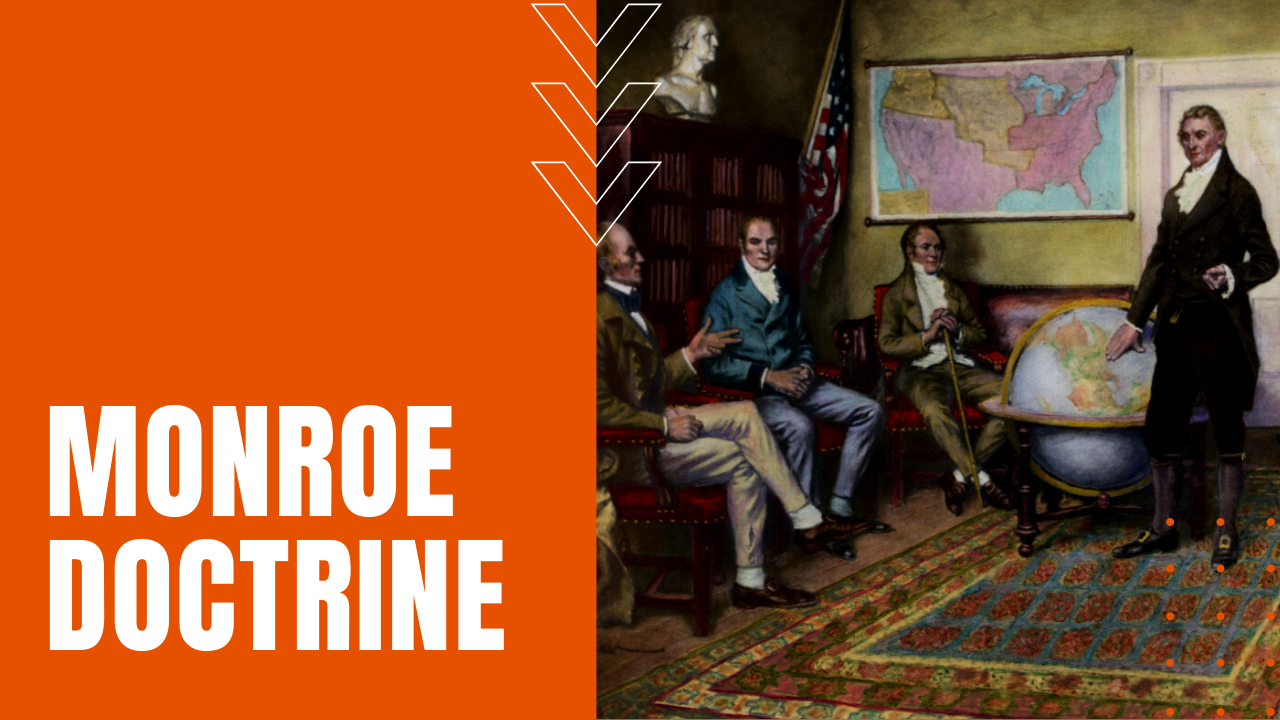Monroe Doctrine: What it is and How it’s Been Used

By the dawn of the 1820s, many Latin American countries had won independence from Spain and Portugal, yet Britain and the United States worried that European powers would yet again try to colonize the Western Hemisphere.
What was the Monroe Doctrine?
While President James Monroe at first favored a joint U.S./British resolution against future colonization, Secretary of State John Quincy Adams distrusted Britain’s own colonial intent, convincing Monroe to make a unilateral state of U.S. policy, which he delivered to Congress on December 2nd, 1823. At the time of Monroe’s bold message that the Western Hemisphere was off-limits to European interference, the young nation lacked enough military clout at the time, which made Monroe’s assertions somewhat pointless until the United States became a dominating world power.
Not until the Civil War had ended would the Monroe Doctrine come of age, when the U.S. government sent military and diplomatic aid to Benito Juarez in Mexico, which allowed his forces to overthrow French-supported Emperor Maximilian from the throne.
President’s Who Have Invoked Monroe Doctrine
Theodore Roosevelt was next to invoke the Monroe Doctrine, when he used it to justify a succession of U.S. interventions in Latin America. Known as the Roosevelt Corollary or his “Big Stick” policy, after Roosevelt took office in September of 1901, he intervened militarily in Central America and the Caribbean, including Nicaragua, Haiti, Cuba and the Dominican Republic.
FDR later softened Roosevelt’s Big Stick policy with his Good Neighbor policy, which ushered in a period of greater cooperation between North and South American countries, but at the same time, FDR invoked the Monroe Doctrine repeatedly to intervene over affairs in a number of South and Central American countries.
During the Cold War, President John F. Kennedy invoked the Monroe Doctrine during the Cuban Missile Crisis of 1962, followed by President Ronald Reagan, who invoked the Monroe Doctrine for U.S. intervention in El Salvador and Nicaragua. President George H.W. Bush was the last president to invoke the Monroe Doctrine, when he sanctioned a U.S.-led invasion of Panama in an effort to oust corrupt Panamanian dictator Manuel Noriega.
